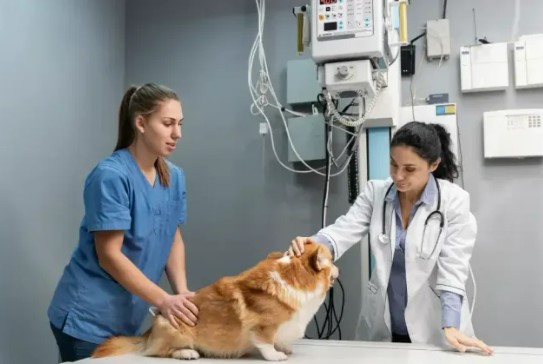How General Veterinarians Handle Both Major And Minor Issues

Every pet owner knows the deep love animals bring into our lives. When health issues arise, whether minor or severe, you need guidance. A Faggs Manor veterinarian plays a crucial role in maintaining your pet’s health. They tackle both minor and major issues with skill. You rely on them for everything from routine checkups to emergencies. For minor concerns like ear infections or dietary changes, they provide quick solutions that ease discomfort and prevent bigger problems. In serious situations like broken bones or surgery, they act with precision and care. Your pet’s well-being is their priority. They combine experience with compassion, ensuring that each animal receives the best care possible. Through thorough examinations, effective communication, and practical solutions, they stand by you and your pet. You walk away with the confidence that your furry friend is in capable hands. Understanding their approach helps you in supporting your pet’s health journey.
The Role of General Veterinarians
General veterinarians handle a wide array of issues. They are trained to diagnose and treat common ailments. They offer preventive care which includes vaccinations and wellness exams. These professionals are your first line of defense in maintaining your pet’s health. Routine visits detect issues early, providing opportunities for timely intervention. A general veterinarian’s toolkit includes treatments for skin infections, dental care, and arthritis management. You benefit from their ability to address these various needs.
Common Minor Issues
Minor issues often include ear infections, skin irritations, and dietary advice. General veterinarians provide practical solutions. For example, ear infections are common in dogs. They clean and medicate ears, offering relief. Skin irritations might come from allergies or insect bites. Vets prescribe ointments or medications to soothe the itch. Proper diet guidance ensures pets receive adequate nutrition.
Handling Major Concerns
Major problems require more intense care. Bone fractures, surgeries, or severe illnesses fall into this category. Veterinarians use diagnostic tools like X-rays and lab tests to understand the issue. They devise treatment plans tailored to each pet’s needs. Surgery might be necessary for some conditions. When this happens, they perform operations with precision. You are kept informed and reassured throughout the process. Post-surgery, they provide aftercare instructions to aid recovery.
Comparison of Minor and Major Issues
Preventive Measures
Prevention is crucial in veterinary care. Vaccinations protect against diseases. Regular health screenings catch early signs of illness. Proper nutrition promotes overall health. By sticking to recommended check-up schedules, you help ensure your pet stays healthy. Vaccinations, which you can learn more about from the CDC, play a key role in preventive care. These steps reduce the risk of developing serious health issues.
Effective Communication
Communication with your veterinarian is essential. You should feel comfortable asking questions. Veterinarians explain diagnoses and treatments in simple terms. This ensures you understand your pet’s health status. Regular updates during treatment processes keep you informed. You are an essential part of your pet’s healthcare team. Sharing observations about changes in your pet’s behavior or habits can aid in diagnosis and treatment.
Emotional Support
Facing pet health issues can be emotionally challenging. Veterinarians provide not only medical care but also support. They understand your bond with your pet. They offer reassurance and guidance during stressful times. Their goal is to ease concerns while ensuring the best outcome for your pet.
Conclusion
General veterinarians are vital for both major and minor pet health issues. They offer comprehensive care tailored to each pet’s needs. By providing preventive care, addressing minor ailments, and managing significant health challenges, they ensure your pet’s well-being. With effective communication and emotional support, they guide you through your pet’s health journey. Through partnership with your veterinarian, you contribute to your pet’s long, healthy life.





